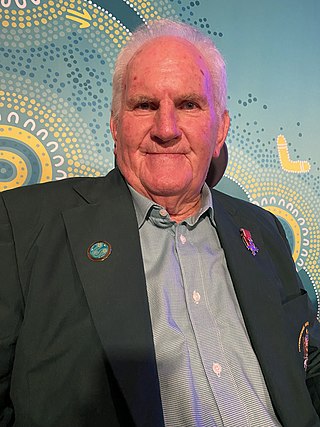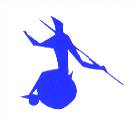
The 1968 Summer Paralympics were the third Paralympic Games to be held. Organised under the guidance of the International Stoke Mandeville Games Federation (ISMGF), they were known as the 17th International Stoke Mandeville Games at the time. The games were originally planned to be held alongside the 1968 Summer Olympics in Mexico City, but in 1966, the Mexican government decided against it due to difficulties. The Israeli government offered to host the games in Tel Aviv, a suggestion that was accepted.

The 1974 British Commonwealth Games was held in Christchurch, New Zealand from 24 January to 2 February 1974. The bid vote was held in Edinburgh at the 1970 British Commonwealth Games. The event was officially named "the friendly games". There were 1,276 competitors and 372 officials, according to the official history, and public attendance was excellent. The main venue was the QEII Park, purpose-built for this event. The Athletics Stadium and fully covered Olympic standard pool, diving tank, and practice pools were all on the one site. The theme song was "Join Together", sung by Steve Allen. The event was held after the 1974 Commonwealth Paraplegic Games in Dunedin for wheelchair athletes.
Athletics at the 1980 Summer Paralympics consisted of 275 events. The Games saw 1,973 Para athletes from 43 countries compete in 13 sports.

Australia competed at the 1968 Summer Paralympics in Tel Aviv, Israel. The Games significantly expanded in 1968 when compared to previous years, as did the Australian team and the events included in the Games. Mexico City were originally to host the 1968 Paralympics, however, they were moved to Tel Aviv in Israel.

Daphne Jean Hilton was an Australian Paralympic competitor. She was the first Australian woman to compete at the Paralympic Games. She won fourteen medals in three Paralympics in archery, athletics, fencing, swimming, and table tennis from 1960 to 1968.

Gary Leslie Hooper, MBE is an Australian Paralympic competitor. He won seven medals at three Paralympics from 1960 to 1968.

John Martin is an Australian Paralympic archer, athlete, table tennis player, wheelchair basketballer and wheelchair fencer who won three silver medals at five Paralympics. He was born in England and emigrated to Australia with his family at the age of 13.

New Zealand sent a 12 sportspeople strong delegation to the 1976 Olympiad for the Physically Disabled in Toronto, Ontario, Canada. At these Games, New Zealand won 13 medals at the 1976 Summer Paralympics: 7 golds, 1 silver, and 5 bronze medals. Eve Rimmer was the most decorated Paralympian at these Games, winning 5 gold medals in athletics.
The 2nd FESPIC Games was a multi-sport event for Far East and South Pacific athletes with a disability held in Parramatta, Australia.

The Commonwealth Paraplegic Games were an international, multi-sport event involving athletes with a disability from the Commonwealth countries. The event was sometimes referred to as the Paraplegic Empire Games and British Commonwealth Paraplegic Games. Athletes were generally those with spinal injuries or polio. The Games were an important milestone in the Paralympic sports movement as they began the decline of the Stoke Mandeville Games' dominating influence. The event was first held in 1962 and disestablished in 1974. The Games were held in the country hosting the Commonwealth Games for able-bodied athletes, a tradition eventually fully adopted by the larger Olympic and Paralympic movements.
Susan Marjory "Tracey" Freeman was an Australian Paralympic athlete who won ten medals at two Paralympics.

Terry Mason is an Australian Paralympic athlete and weightlifter, who won two bronze medals at two Paralympics.
Bruce Oliver Thwaite was an Australian Paralympic competitor. During World War II, he sustained a spinal injury when he landed on a tree after parachuting from a bomber plane over Germany. He was treated at the Stoke Mandeville Hospital.

Raymond Barrett was an Indigenous Australian Paralympic athlete left a paraplegic following a car accident. Prior to this he was a champion juvenile athlete in able-bodied sports. A bronze medalist at the 1972 Summer Paralympics Heidelberg Germany, a high achiever at the Stoke Mandeville Games England, Commonwealth Paraplegic Games, National Paraplegic and Quadriplegic Games, FESPIC Games and State selection trials. A sporting complex in the Sutherland Shire of Sydney is named in his honor. The people of this Shire were his 'significant others'.
Valerie Robertson is a British former Paralympic athlete who competed in archery, athletics, swimming, and wheelchair fencing, winning at least a silver medal in each. She won a total of six Paralympic gold medals at three Games. After completing her Paralympic career, Robertson had a very successful transition to wheelchair lawn bowling.
Kevin Wayne Bawden AM is an Australian Paralympics competitor in six sports and a leading disability sports administrator in Australia.

The Third Commonwealth Paraplegic Games was a multi-sport event that was held in Edinburgh, Scotland from 26 July to 1 August 1970. Dubbed the "little games", they followed the 1970 British Commonwealth Games which were held in Edinburgh from 16 to 25 July of that year.
William Lean (1941–2015) was a New Zealand Paralympic athlete from Dunedin. In the 1968 Summer Paralympics he competed in archery, athletics, dartchery and table tennis. In the 1976 Summer Paralympics he competed in athletics, table tennis and weightlifting, winning a gold medal in Athletics in the Men's Shot Put 4.

The second Commonwealth Paraplegic Games were held in Kingston, Jamaica from 14 to 20 August 1966. There were 133 athletes from 10 countries. The Games were opened by Prince Philip.
Victor Salvemini was an Australian Paralympic athlete from Western Australia. As a wheelchair athlete, he competed in several sports including archery, basketball and track sprinting in the 1970s. A paraplegic, he lost the use of both his legs after a car accident in Fremantle, Western Australia in 1961 when he was 14 years old.













